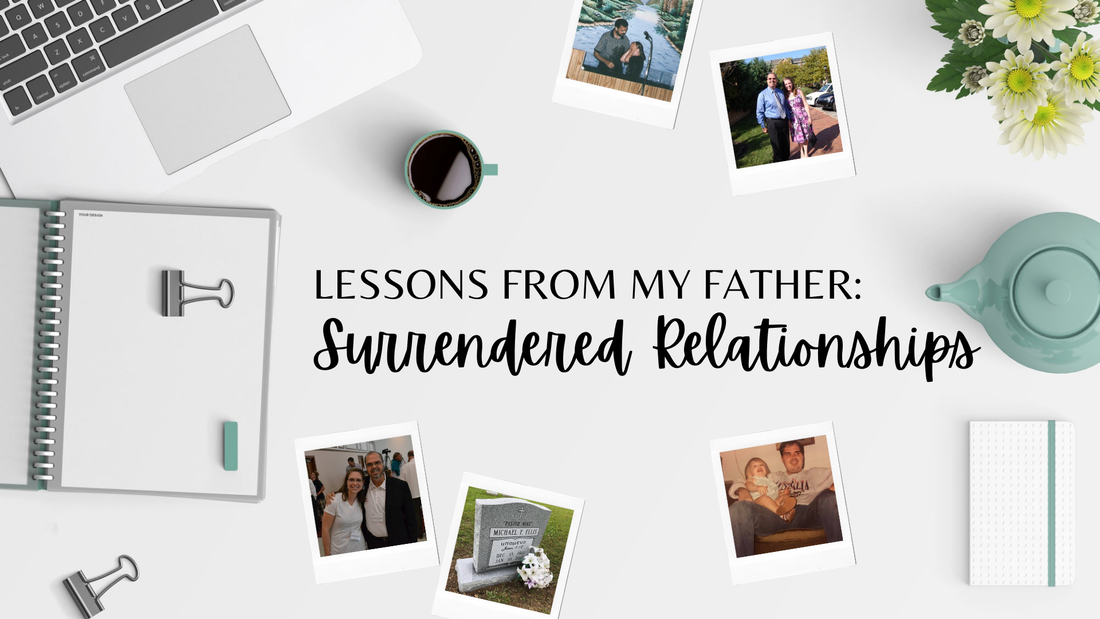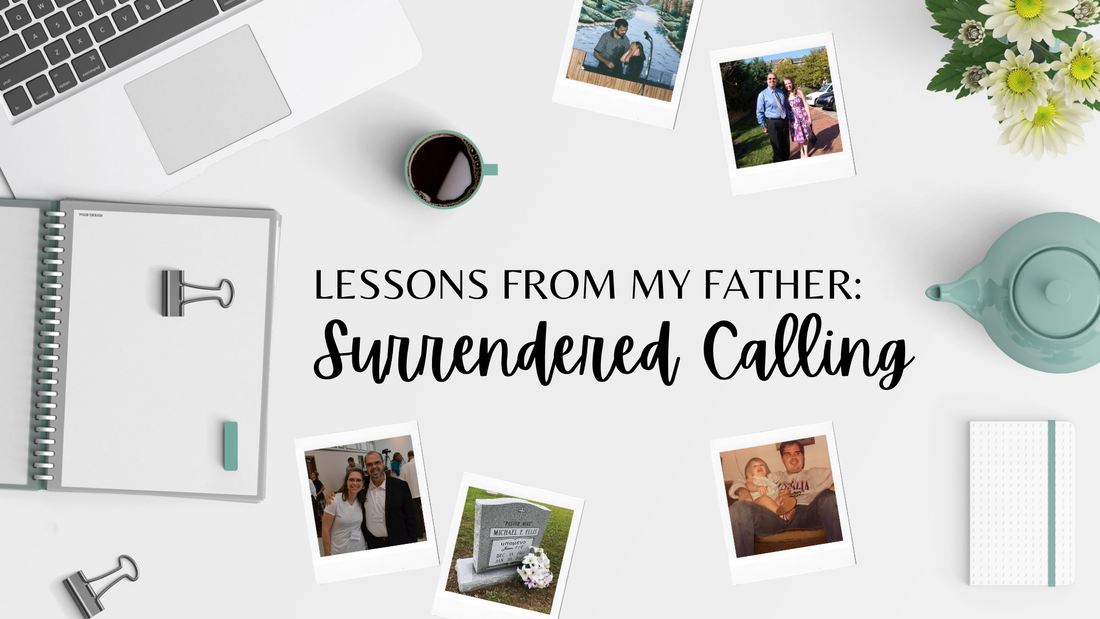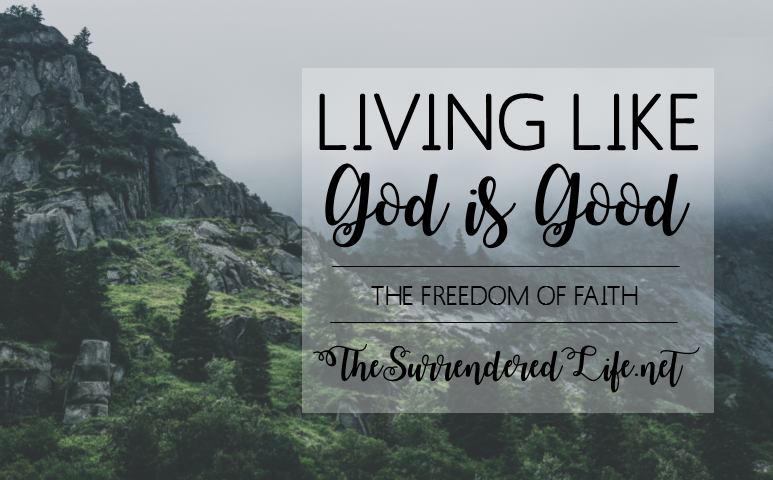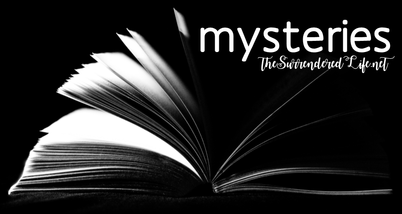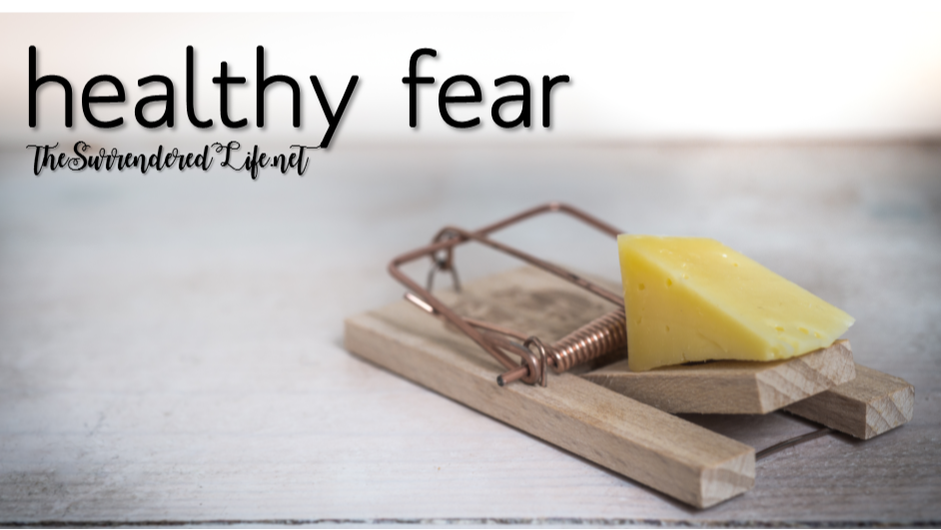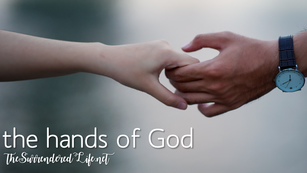|
Another lesson that my dad taught me about surrender had to do with relationships. None of these lessons I’ve been sharing have been easy, but this one was particularly difficult for me. And unfortunately, it’s one I’ve had to learn many times over. THE ROOT OF MY WRESTLINGThe first time I remember wrestling through surrender was when I was 14 years old. I went through a phase of immense fear, and it was almost entirely related to losing my parents and being alone. It eventually got to the point where I wasn’t even able to sleep, because I’d face dreams of losing my parents, or I’d be terrified something would happen to them overnight.
None of this was rational, obviously. But fear never is. When my dad realized what was happening, he sat me down to talk about it, as any good father would. But instead of reassurances about it all being in my head, or promises that nothing would happen, he instead challenged me with this: what if the worst did happen? In my fear, I wanted guarantees – don’t we all? - but my dad’s question stopped me in my tracks. “If the worst happens,” he said, “will you still trust God?” I didn’t know how to answer at first. At this point, I had not connected my fears with my relationship with God. What my dad was wisely pointing out is that my fear was not nearly as tied to him and my mom as I thought it was; rather, my fear was that God was not good, loving, or trustworthy. “If you don’t decide now that God is good and that you can trust him,” he explained, “then if or when something bad does happen, you will fall apart.” My dad then brought my struggles back to the start of my relationship with God. Was I sincere? Did I really surrender my life to Christ? If so, this was just the next step. God was calling me to act on what I’d said by trusting Him to care for my parents and for me, regardless of what that would end up looking like. “If you wait to decide,” my dad challenged me, “then you’ll decide wrong.” It was time to act on what I knew to be true, rather than what I felt could be true: God is good. God loves me. God loves my parents. God is in control. Even if the worst happens, these things are still true and God will help me through.
0 Comments
I’ve always loved my comfort zone. As a baby, I stubbornly clung to my comfort zone and refused to arrive on time. My poor mother had to be induced twice before I entered the world. As a child, I dragged my feet in whatever way I could when it came to something new. Learn to read? Why? I’d rather be read to. Tie my shoes? I’ll just stick with slip-ons. What’s that? You want to go on a roller coaster? #Nope. I could go on, but you get the picture.
One of the best things my parents did for me was push me beyond that comfort zone to try or to learn something new, even if it was uncomfortable. Not everything that I tried became a favorite (I still don’t like roller coasters), but I discovered many things that I actually enjoyed, such as reading. By the time I was a teenager, I always carried a book with me and easily read several each week. I’d like to say that I’ve grown into an adventurous adult who enjoys stepping out of my comfort zone, but I can barely even type that without laughing. Those who know me best know that’s not the case and probably never will be. I’m still prone to anxiety about the unknown, still withdraw from things that are uncomfortable, and many times cherish my comfort zone perhaps a bit too much. Thankfully, my husband and my mom recognize these things about me and still encourage me to take those scary first steps of something new or unknown, picking up where my dad left off and often using his (or my own!) words against me when it comes to change. “I can’t help the way I am.” “It’s purely chemical.” “It’s the way I was raised.” “It’s my family history.” “It’s not my fault.” We’re often asked the question, “When life hurts, where do you turn?” It’s a good question, and it challenges us to learn to turn to Christ in the hard moments of life. But I want to pose a slightly different question to you today. “When life hurts, who do you blame?”
When I look back on my life and the moments that I believe shaped me into who I am today, I have to admit that those moments were some of the most painful experiences of my life. And yet, God used those times of suffering to make me into the person I am today. We all have moments in life that define us, and unfortunately, they’re often related to suffering of some kind. As much as we’d like to think that it’s the mountain top experiences that shape us, that’s rarely the case. Rather, God tends to use the valleys of our lives to grow us, to change us, and to make us into the image of Christ, and it’s those very moments that enable us to experience the joy of the mountain top. The valley is dark, scary, and painful. Sometimes the suffering is a direct result of our own sinful choices. Sometimes it’s the result of the sinful choices of others. And sometimes it is simply the result of living in a fallen world. Regardless of the cause, the way we respond to resistance, pain, and difficulty reveals what we truly believe in the deepest part of us. In those moments, we are faced with some of the hardest questions we will ever face: Do I really believe God is good? Do I really believe God loves me? Do I really believe God is in control? Do I really believe God is all I need? MAKING GOD ENOUGHIf you’ve been a Christian for any length of time, you’ve probably heard the saying, “You won’t know God is all you need until God is all you have.”
Unfortunately, it’s a common saying because, for the most part, it’s true. At least, the idea behind it is true. But the phrasing itself lends itself to the idea that you won’t really know if God is enough until you’ve lost everything. And while it’s true that you won’t know it by experience until that point, I’d say that you can know that God is enough before you lose everything. In fact, that’s actually the goal. If we wait until we experience the loss of what we love to discover if God is enough, we will find that God is not enough. Instead, we must learn how to let God satisfy us in the here and now so that when the times of crisis come, we already know that He will be enough and He will carry us through. Otherwise, when we experience the pain and suffering that is inevitable in life, we will instead turn to ourselves or others to make us feel better, following the path of idolatry we talked about last week. The fact of the matter is that what you believe in the light is what will be proven in the dark. If you want God to be enough for you then, you must make Him enough now. Hope is a funny thing. It can lead to excitement, joy, and peace. But hope can also lead to despair, discouragement, and defeat. Hope fulfilled is the best thing in the world. Hope disappointed is the worst thing in the world. DANGER AHEADWhen Jesus came to the region of Caesarea Philippi, |
One of those sins that Christians tend to address as "minor," "little," and "unimportant," fear is often deemed unnecessary to address. We don't see it as a big deal, so we just ignore it, hoping it’ll go away. Unfortunately, though, as time goes on, fear not only doesn’t disappear – it actually grows. Before too long, the “little” sin is now the BIG sin that has begun to push us around and is grasping for control over every part of our lives.
I think part of the struggle we have to take fear seriously starts with the fact that fear in and of itself may not be a problem. Fear is a God-given emotion. The danger is found in what we’re fearing and how we respond to that fear.
I am so thankful that God uses people
| Our God is a very personal God. He is a relational God. He lives in community, and He designed us to need that community, as well – starting with the fellowship we have through a relationship with Him. But it doesn’t end there – He also created us to need other people. Other Christians. Fellowship and relationships through the local church. Because God uses people. |
We need encouragement. We need help. We need hope.
When we’re overwhelmed, frustrated, tired, and broken, we are tempted to isolate. But it’s in those broken moments that we most need each other. We benefit the most from our relationships when it’s the hardest – when we’re most tempted to give up, close up, or shut down. When we’re vulnerable. When we’re scared. When we’re desperate.
The pattern in scripture is that when people (or even the nation of Israel) were desperate, they cried out to God. And God sent a man. God sent a woman. God sent a person. And He used that person to help, encourage, and bring about deliverance, both personally and corporately.
When Adam was alone and needed a helper,
God created Eve.
WHEN DAVID WAS RUNNING FOR HIS LIFE,
GOD GAVE HIM JONATHAN.
When Israel cried out for deliverance in Egypt,
God sent Moses.
bethany HARRIS
In a word: passionate.
About Jesus, church, ministry, music, reading, family, friends, and sometimes even
iced skinny soy mochas.
Archives
January 2022
July 2020
June 2020
May 2020
April 2020
March 2020
February 2020
December 2018
November 2018
October 2018
August 2018
April 2018
March 2018
February 2018
January 2018
December 2017
October 2017
May 2017
March 2016
October 2015
August 2015
Categories
All
Anger
Anxiety
Attitude
Codependency
Conflict
Depression
Emotions
Faith
Fear
Forgiveness
Grace
Gratitude
Hope
Hupomeno
Idolatry
Love
Lust
Married Life
Mary Study
Ministry
Music
Peace
Personal
Pride
Priorities
Relationships
Salvation
Self Esteem
Surrender
TEA
Temptation
Trials
Worship

